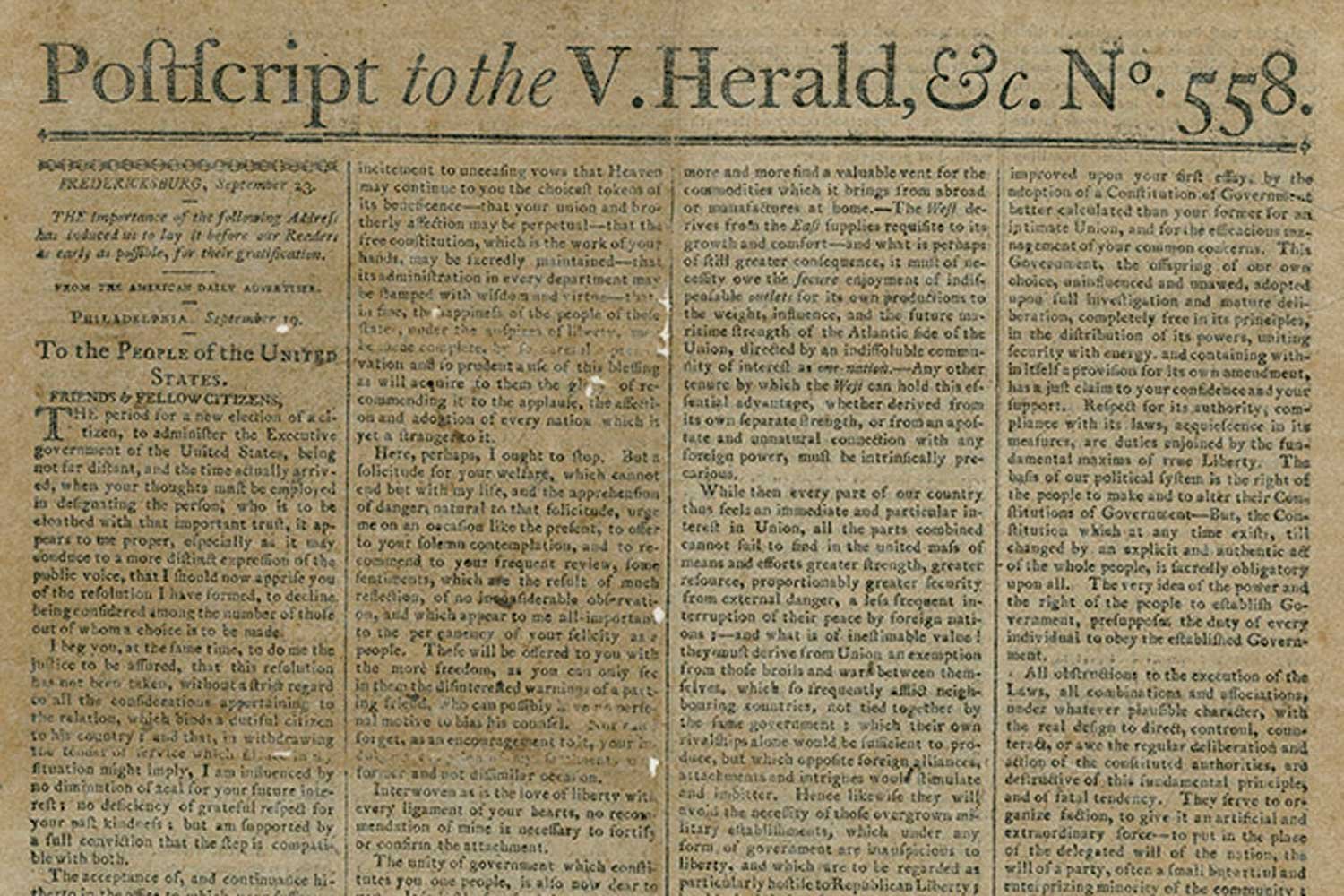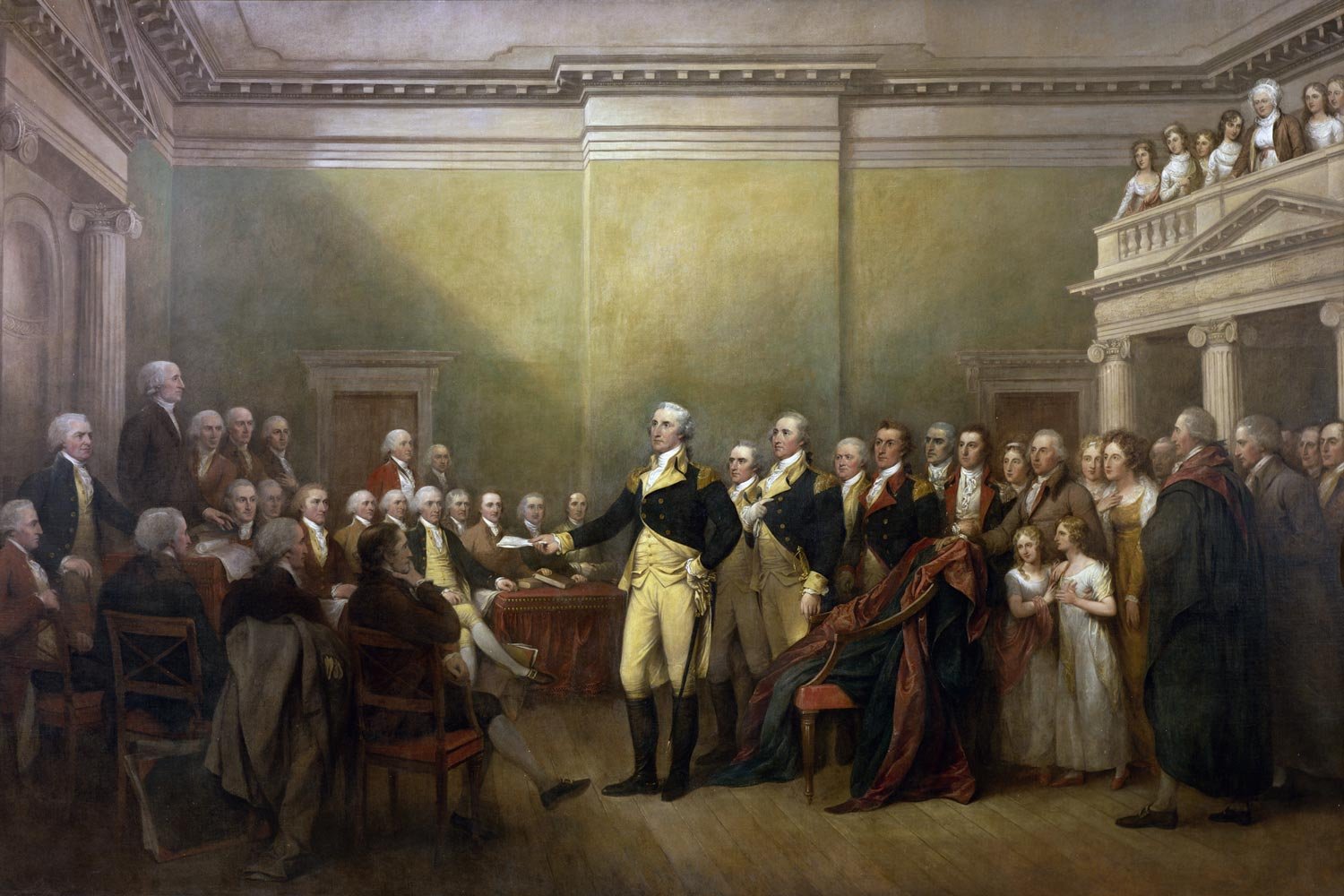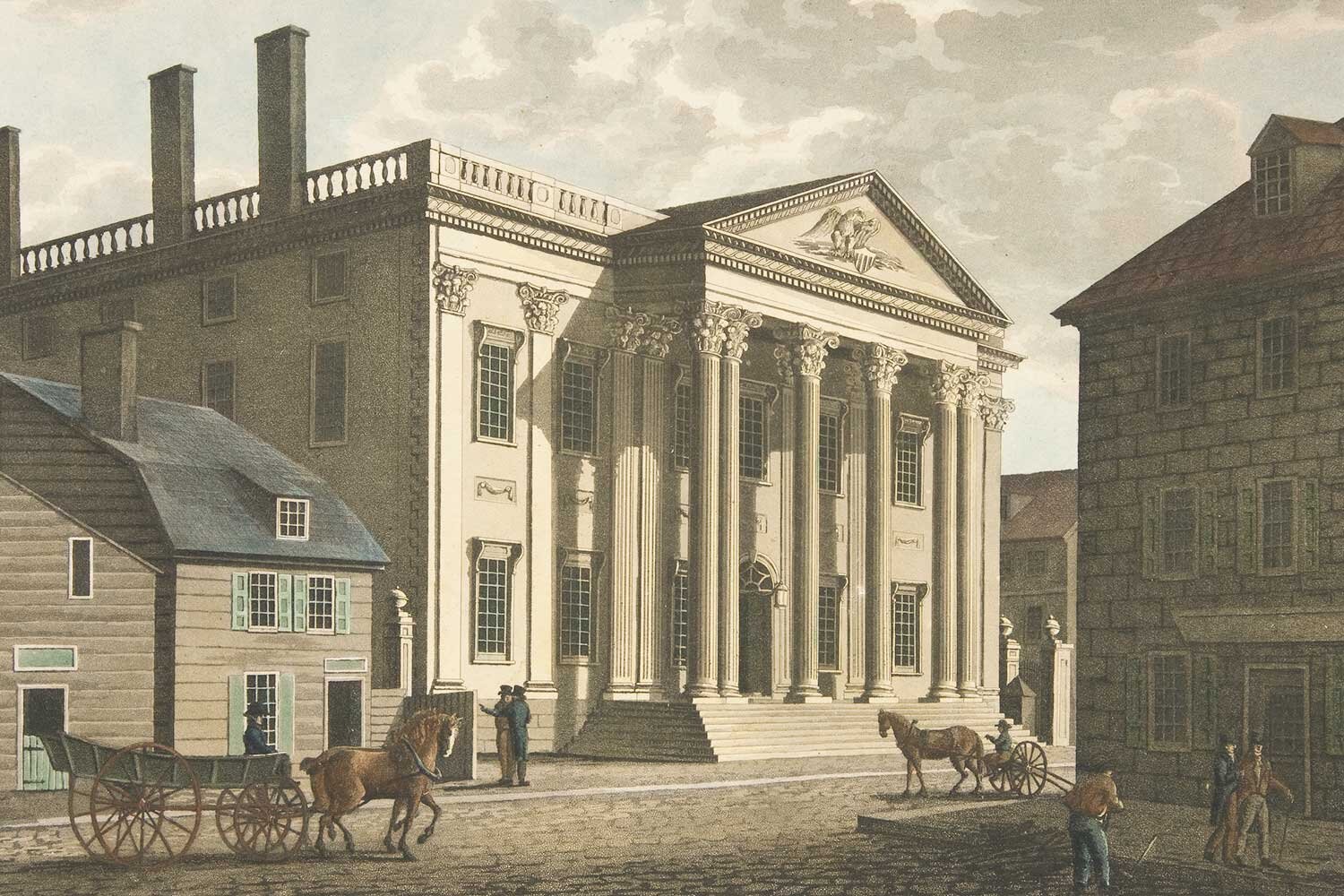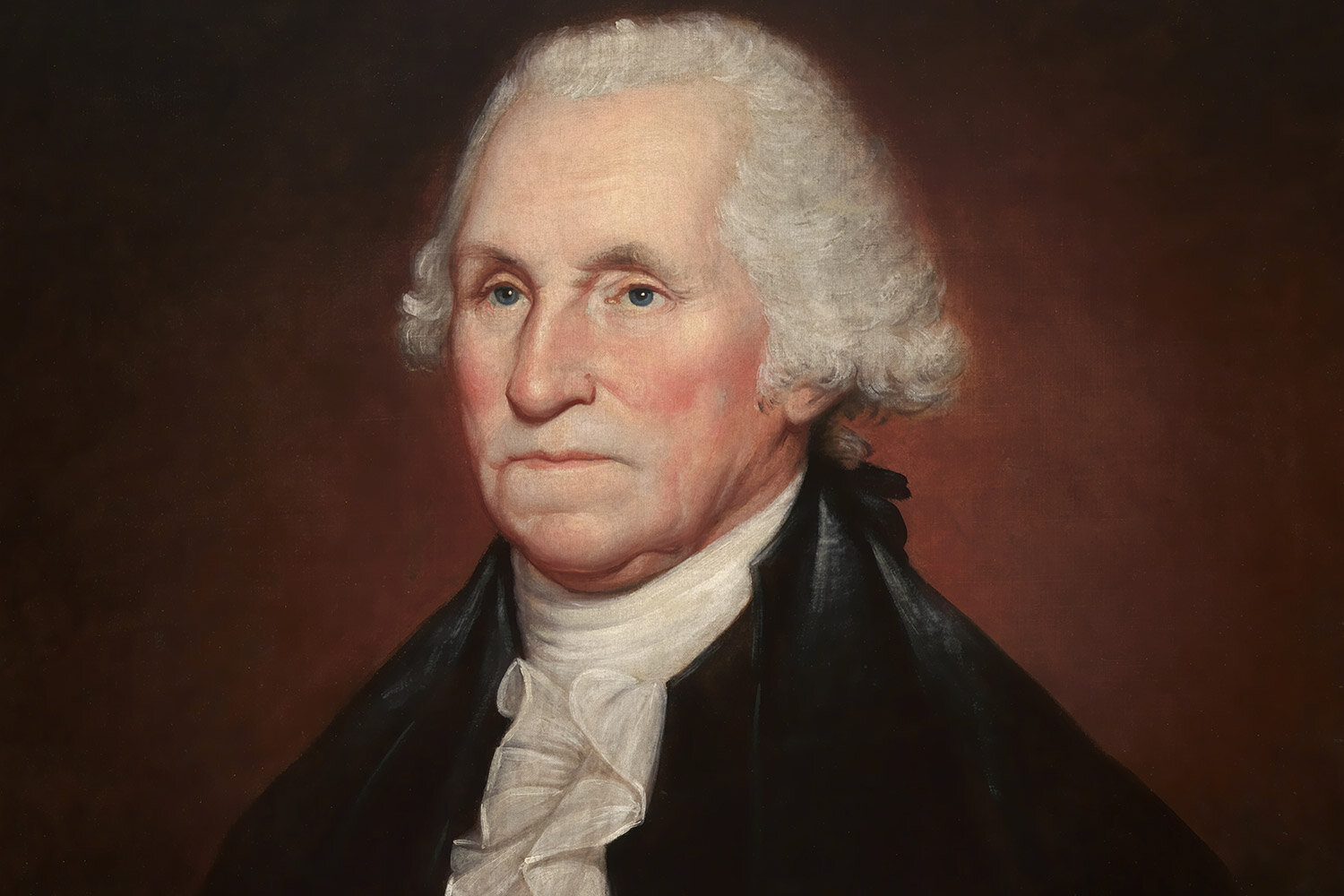George Washington Calls for Unity in Farewell Address
After eight years in office, President George Washington was ready to step down. He had planned to retire at the end of his first term but was talked out of it. During this second run at saying goodbye to public life, Washington was determined to finally retire.
The President asked Alexander Hamilton, his devoted assistant, to draft a farewell letter to the country explaining his intentions. While the words were Hamilton’s, all the ideas were Washington’s.
The letter they crafted was a beautifully written and non-partisan assessment of where we were at as a nation and provided guidance for the country to follow when he left the stage. It begins with President Washington stating that his decision to retire from public life does not mean he is any less attached to the country and his fellow citizens.
He tells Americans his decision is “influenced by no diminution of zeal for your future interest, no deficiency of grateful respect for your past kindness.”
He also emphasizes that he believes the country is in a place where it can continue to thrive without him in charge. Were it not for this belief, President Washington assures his countrymen his would not step down.
In the next part of his Address, President Washington offers “some sentiments which are the result of much reflection, of no inconsiderable observation.” He hopes his fellow citizens will “see in them the disinterested warnings of a parting friend.”
First, Washington discusses the need for America to stay united. He states the “Unity of government…is a main pillar in the edifice of your real independence, the support of your tranquility at home, your peace abroad, of your safety; of your prosperity; of that very Liberty, which you so highly prize.”
The President also reminded his fellow citizens that although our country is vast, the different geographical regions are more similar than dissimilar, and we cannot let one area consider another part its foe. He tells us, “The name of American, which belongs to you, in your national capacity, must always exalt the just pride of patriotism” and “With slight shades of difference, you have the same religion, manners, habits, and political principles.”
Washington truly believed all the parts of our great country benefitted the whole and we were stronger together than apart. Moreover, he felt the preservation of our liberty was dependent on our remaining together. He stated, “your Union ought to be considered as a main prop of your liberty, and that the love of the one ought to endear to you the preservation of the other.”
Second, Washington warns us against the rise of party faction and the danger it poses to America. He stated, “The alternate domination of one faction (party) over another, sharpened by the spirit of revenge, natural to party dissension…is itself a frightful despotism.” Moreover, “It agitates the community with ill-founded jealousies and false alarms; kindles the animosity of one part against another.”
He next discusses how religion and morality are essential to our future success as a nation. Washington states, “of all dispositions and habits, which lead to political prosperity, Religion and Morality are indispensable supports.” He saw those as “the great pillars of human happiness, those firmest props of the duties of Men and Citizens.”
Additionally, he wrote we should “promote…institutions for the general diffusion of knowledge”. He found “it is essential that public opinion should be enlightened.” Washington felt strongly that public debate be an open dialogue and that free expression and the exchange of differing viewpoints critical to our society.
WHY IT MATTERS
So why should Washington’s call for unity in his Farewell Address matter to us today? George Washington understood that for our great nation to succeed it must remain united. Although differences of opinion were to be expected, Americans should not allow these disagreements to split us apart. As Washington pointed out, despite being from different regions of the country, we have more ideas and characteristics that are similar than dissimilar.
He was not implying we should have only one train of thought or that we should not debate critical topics of the day. However, he felt our discussions should be informed and civil. This sound advice is something all Americans should follow today.
SUGGESTED READING
There are several excellent books on the life of George Washington. One of the newer volumes is Washington, A Life by Ron Chernow. It was published in 2010 and provides great detail about Washington’s impressive life.
PLACES TO VISIT
Washington’s Headquarters State Historic Site in Newburgh, New York is the site of General George Washington’s headquarters from 1782-1783. The beautiful park has a great museum and over 1,300 objects on display. Interestingly, it was our nation’s first publicly owned historic site.
Until next time, may your motto be “Ducit Amor Patriae,” Love of country leads me.






In his Farewell Address, President Washington shared his thoughts on several topics, including the need for America to remain fiscally prudent and to avoid permanent foreign alliances that could pull America into a costly war. With the fighting raging again in Europe, this time thanks to Revolutionary France, and with much sentiment favoring the French, Washington felt it necessary to advise a neutral course for the United States.